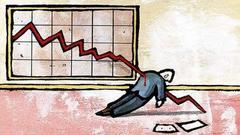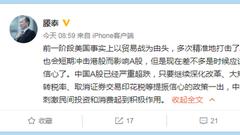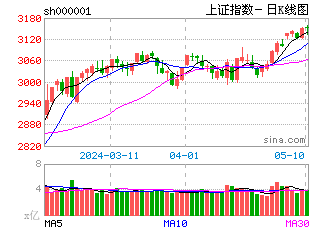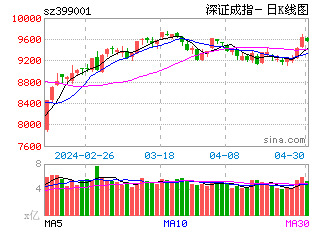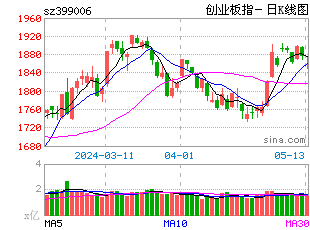Emily Whiting, Executive Director of Morgan Asset Management: Looking for A share buying opportunities in the decline Our reporter Li Jiexue reports from London On October 18, A-share suffered another heavy fall, with the three major stock indexes falling by more than 2%, and the Shanghai Index closing down nearly 3%, falling below the 2500 point integer threshold and closing at 2486.42, a new low since November 2014; The Shenzhen Composite Index fell 2.4%, and the GEM approached 1200 points. Compared with the end of 2017, the Shanghai Stock Exchange Index retreated by 24.82%; Shenzhen Stock Index retreated 32.02%; GEM index retreated 31.25%. However, with the sharp decline of A-shares, more and more foreign institutions have increased their observation of A-shares, and some of them have even taken actions to increase A-shares. A few days ago, 21st Century Business Reporters attended the annual media conference of JPMorgan Asset Management (hereinafter referred to as "JPMorgan Asset Management") under JPMorgan Chase Group in London, England. At this meeting, "China A-share" became a high-frequency word that cannot be ignored. Morgan Asset Management believes that China's A-share market will promote the development of the entire emerging market in the future, and Morgan Asset will increase the layout of the A-share market. During the meeting, Emily Whiting, Executive Director of Morgan Asset Management, received an exclusive interview from our reporter. Emily Whiting is an investment expert of Morgan Asset Management's emerging markets and Asia Pacific equity team. She pointed out that "Morgan Asset Management has been increasing its A-share holdings in the past few months. The market decline has brought better opportunities for high-quality targets to intervene. We hope to obtain long-term returns in the Chinese market. ” Sharp decline brings buying opportunities 21st Century: Since the beginning of this year, China's A-share market has experienced a sharp decline. Do you think it is a good time to allocate the A-share market? Emily Whiting: We think so. There are some very attractive opportunities in the A-share market. In fact, we have been increasing the allocation of A-shares, especially in the past few months. Because we noticed that some high-quality companies are being sold off on a large scale, which gives us the opportunity to buy. Although the factors of trade war make us worried about China, we will observe these companies in the next three years, five years and ten years. As the time line grows longer and all the noise surrounding the trade war disappears, we think these companies will become very attractive and can bring us long-term returns. We are aware that some things may get worse before they get better, but we think there will be some good valuation opportunities, especially some companies that are well managed, well governed and linked to China's domestic spending. Many people become panic when the market falls, but you will find that when the market falls, all good or bad things in the market will fall, and for good things, the current sale is a good opportunity to buy. We should try to find opportunities from the noise and look at them in the long run. As a foreign-funded institution, it needs to be selective in the allocation of A-shares, need personnel and field coverage research, need research teams and resources, and so on. In our team, there are more than 30 Mandarin speakers just covering emerging markets in Asia, and team members can speak a total of 21 different languages. Many asset management institutions cannot do this. Therefore, I think we have the ability to go to different emerging markets to find opportunities that have not been discovered. 21st Century: Can you talk about how Morgan Asset Management explores investment opportunities in China and other emerging markets? Are there any special favorite fields? Emily Whiting: I think in some industries, more and more emerging market companies are as good or even better than developed market companies. Especially in science and technology, we believe that there are many "undiscovered" enterprises that will become leaders in emerging markets. For example, in the banking industry, India's HDFC (note: India's fourth largest private bank) and Russia's Sberbank (note: Russian Federal Reserve Bank) have done a lot of things through applications on mobile devices. In India's HDFC, you can carry out 75 different transactions on your mobile phone, while in the UK, you are lucky if you can do three transactions. In addition, people in Asia spend more money on the Internet to buy everything they need from the Internet, while few people in the United States shop online. So I think e-commerce and technology are the places where many leaders can be born in emerging markets. China is also a good example. There are more UAVs made in China than anywhere else in the world. In terms of surveillance cameras, China has a leader like Hikvision. The engine made by China's Wangao Motor is as good as that made by any other advanced company in the world. People used to think that emerging markets were one step behind, but I think they are almost there now. In many cases, emerging markets take the lead in technology, which is why technology has a greater weight in the Asian index than the S&P 500 index. Therefore, the so-called "undetected" means that many people have no research ability to find these companies, and we hope to find these companies before others hear about them. Such names as Midea, Fuyao Glass, or Yili are widely known in China, but few of us know about them. These companies can be said to be the "first wave" for foreign institutions to explore A-shares. What we need to do next is to explore the "next wave". We can't find these companies behind the Bloomberg terminal in London, but we must implement them. Favor long-term inflow of foreign capital 21st Century: Not long ago, FTSE Russell confirmed that China's A-share market will be upgraded to a secondary emerging market. Almost at the same time, MSCI announced that it plans to increase MSCI's A-share large cap stocks by 5% to 20%. In addition, the "Shanghai Luntong" mechanism is also advancing. What do you think these actions mean for the Chinese market? Emily Whiting: I think it is very helpful to improve the popularity and credibility of A-share, which is mainly reflected in the following two aspects: first, it forces foreign investors to understand that A-share is a huge market, and people will find that the liquidity of A-share market is more than the total of other emerging markets. Secondly, foreign institutions will passively promote the flow of funds into A-shares, because after A-shares enter the index, everyone must hold them. For those of us who are active managers, this also forces us to think about what we should do with such a large market? How to approach it? How will you invest? Which companies do we like or dislike? This will eventually force more people to participate and make decisions. In the short term, the inflow of foreign capital into A shares may decline, but the long-term trend is bound to increase. In the next three years, five years and ten years, you will gradually see more and more capital inflows. At present, the A-share market is still dominated by local retail investors, and there is almost no foreign ownership. Therefore, the increase of foreign ownership in the future is a good thing, because it is more stable and long-term. On the other hand, the inflow of foreign capital will theoretically encourage more Asian investors to make long-term investments, although it is not easy to change the mentality and mood of Asian investors. From different regions of the world, Asian investors usually like to change their portfolios in the short term, so I'm not sure whether the inflow of foreign capital will completely extricate A-shares from this situation. But at least we hope that the intervention of foreign capital can start to encourage people to take a longer view and regard buying stocks as investment rather than gambling. We expect this change. 21st Century: Due to the increasingly open financial environment in China, the interest of foreign institutions in the Chinese market has indeed increased significantly. However, many mainland investors believe that it may be difficult for foreign institutions to adapt to the Chinese market. What do you think of this? Emily Whiting: I think it is true. This is also the concern of many foreign investors about China. There are many foreign investors who believe that the Chinese market is not stable enough, and that the market is not reasonably priced according to fundamentals. People just buy because prices rise. Therefore, the A-share market needs to be changed. With the increase of foreign investors, the stock prices of A-share companies will be more in line with the fundamentals than they are now, but this will take time. Before that, being included in the international index was a good way for people to buy A-shares. As the market matures, you will get a better portfolio of investors, better stability, and better assessment of the fundamental market, thus leaving the pure momentum market. 21st Century: What do you think is the biggest difficulty for foreign funded institutions to explore the Chinese market? Emily Whiting: For foreign-funded institutions, they need to know everything about the whole market to explore the Chinese market. Chinese companies have their own uniqueness. We must understand how these companies operate and attach importance to them. This requires the help of language and culture. If there are no Mandarin speakers in the team, they may be lost in translation and completely unable to understand the Chinese market. To understand Chinese culture is to understand how Chinese people spend money and what they pursue. Only by understanding how Chinese culture is different can we judge which company can succeed. The same is true for other emerging markets. Reduce the impact of trade disputes 21st Century: When considering investing in the Chinese market, what risk factors do you most care about? Is Sino US trade an important factor? Emily Whiting: The Sino US trade issue is indeed one of the factors that we are very worried about, but what we are trying to do is to invest in individual companies and think about the opportunities for these companies to succeed. So for us, the biggest concern or risk of investing in China is actually the same as the biggest risk of investing in other emerging markets. Suppose that five years later, the company still exists, and its market share will increase? Is this a growing industry? Is the company's management doing the right thing with shareholder capital? Can they allocate capital wisely and have good capital discipline? This is our consideration. Although emerging markets do have risks from a political and economic perspective, the biggest risk we focus on is whether the company operates in the right way. We do not believe that the macro environment is unimportant. The political uncertainty in many emerging markets will bring pressure to our investment. But in the final analysis, we need to find the best companies in emerging markets. If you hold them for a long time, a good company will survive. You will find that during the economic downturn, the strong will become stronger. For China, if we cut off a major trading partner, we may have a hard time. So when we invest in A-shares, we look for companies that are not affected by trade issues in the domestic market of China. China has the largest population in the world. As long as we find a place where people are willing to spend money, it doesn't matter what happens outside. Of course, some companies may grow more slowly, or there may be some headwinds, but you will never find that all these companies are struggling, and there will certainly be opportunities. 21st Century: So you think that investment in emerging markets, including China, must seek certainty in uncertainty? Emily Whiting: Yes, the reason why trade issues are so concerned is that they are full of uncertainty. No one knows what will happen next. All kinds of guesses are worrying. But you will find that global investors want asset classes to recover, so they are willing to buy back. My view has always been that this long-term story will not change for investors. The 4.5 billion people living in emerging markets want a better standard of living. They will have more money in their pockets when they work overtime, and they will spend it. No matter what Donald Trump tweets or how the Federal Reserve raises interest rates, they will do so. For example, all these things in Sino US trade cannot prevent people from spending more money on Yili, because people want cream and yogurt. When we are all attracted by headlines and overwhelmed by noise, there are 4.5 billion people on the ground. Most of them, even your own friends, may never have heard of Donald Trump. Is this a disconnection worthy of our reflection? [Details]

